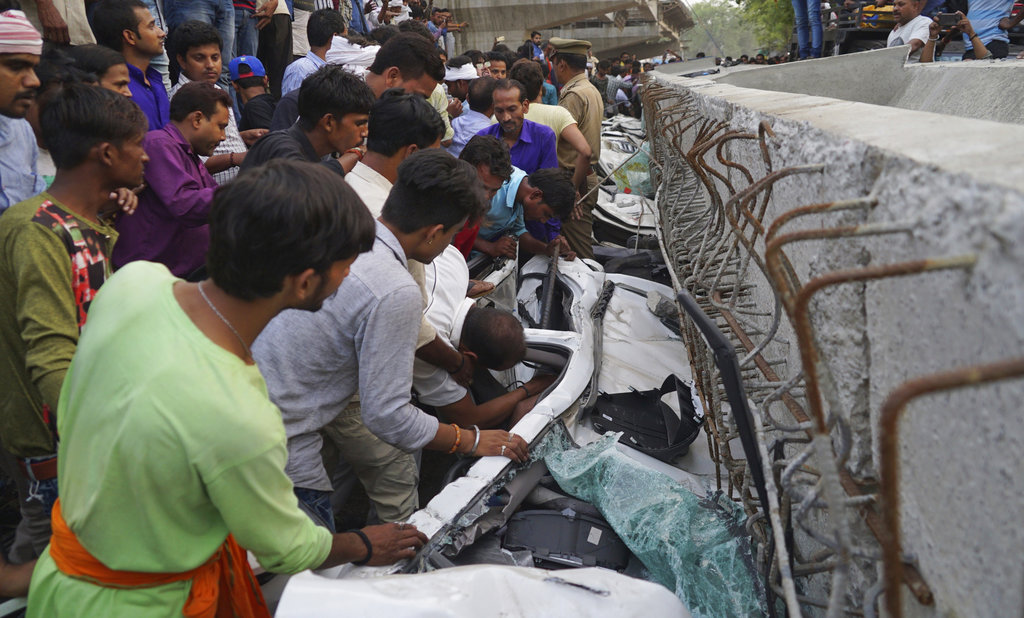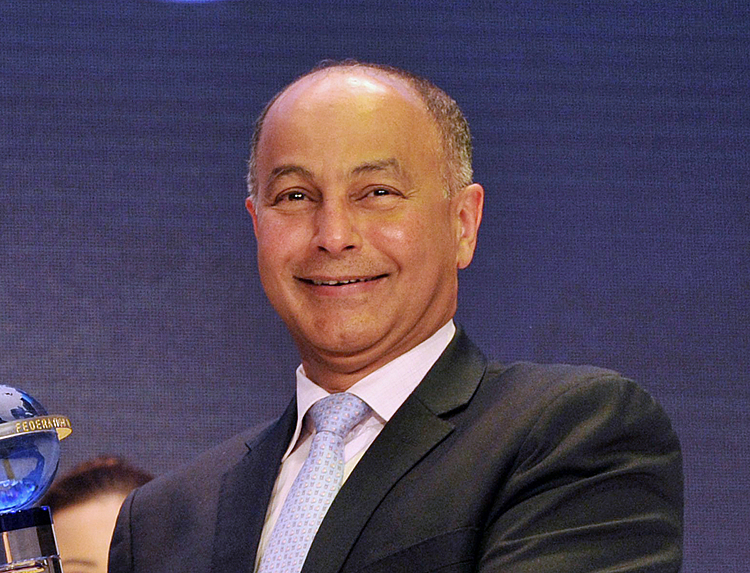The Latest: US to end travel rules for vaccinated on Nov. 8
WASHINGTON — The Biden administration is expected to announce Friday that it will lift travel restrictions on Nov. 8 for fully vaccinated individuals arriving in the U.S. by air travel or by crossing land borders, according to a White House official.
Foreign nationals will be able to travel to the U.S. if they show proof of vaccination and a negative COVID-19 test taken within three days of travel. The policy change was announced in September, but the White House is announcing Friday the date when it will take effect.
The White House announced earlier this week it would lift restrictions on fully vaccinated foreign nationals for non-essential travel at U.S. land borders and ferry crossings with Canada and Mexico in early November. Land and ferry travelers will be required to present proof of vaccination to officials upon request.
The official, who was granted anonymity to speak on a policy that had not yet been publicly announced, said that the Centers for Disease Control and Prevention has informed airlines that all FDA-approved and authorized vaccines, as well as those that have an Emergency Use Listing from the World Health Organization, are acceptable. The CDC plans to issue guidelines on acceptable proof of vaccination in the coming weeks.
— By Alexandra Jaffe
___
MORE ON THE PANDEMIC:
— Russia struggles to meet global orders for Sputnik V vaccine
— Made in India virus kits boost testing, and local industry
— FDA panel endorses lower-dose Moderna COVID shot for booster
— FDA unlikely to rule on Merck’s COVID pill before December
— See all of AP’s pandemic coverage at https://apnews.com/hub/coronavirus-pandemic
___
HERE’S WHAT ELSE IS HAPPENING:
PARIS — COVID-19 tests in France are no longer free for unvaccinated adults unless they are prescribed by a doctor.
While tests remain free for vaccinated adults and all children under 18, adults who have not gotten their shots will have to pay 22-45 euros ($25-$52) to get tested as of Friday.
The government introduced the change as a complement to the COVID-19 passes that have been required in France since the summer. To get a pass, people need to show proof of vaccination, a recent negative test or recent recovery from the virus.
The passes are required to visit tourist sites, for hospital visits and on domestic train trips and flights. The pass requirement, announced in July, helped boost France’s vaccination rate.
Over 49 million people, or about 74% of the population, are fully vaccinated against the coronavirus in France. Everyone age 12 and older are eligible for shots.
___
MOSCOW — Russia’s daily number of new coronavirus infections and deaths surged to another record on Friday, a quickly mounting figure that has put a severe load on the country’s health care system.
The government’s coronavirus task force reported 32,196 new confirmed coronavirus cases and 999 deaths in the past 24 hours.
Death tolls have set daily records over the past few days, approaching 1,000 as infections spread amid a sluggish vaccination rate and Russian authorities’ reluctance to toughen restrictions that would further cripple the economy.
The government said this week that about 43 million Russians, or about 29% of the country’s nearly 146 million people, is fully vaccinated.
The Kremlin has also ruled out a nationwide lockdown like the one early in the pandemic that badly hurt the economy, eroding President Vladimir Putin’s popularity. Instead, it has delegated the power to enforce coronavirus restrictions to regional authorities.
___
LONDON — British health officials say 43,000 people in southwest England may have been wrongly told they don’t have the coronavirus because of problems at a private laboratory.
The U.K. Health Security Agency says a lab in Wolverhampton, central England has been suspended from processing the swabs after reports of false negatives. The faulty results are among tests processed at the Immensa Health Clinic Lab between early September and this week.
The issue was uncovered after some people who were positive for COVID-19 when they took rapid tests went on to show up as negative on more accurate PCR tests.
One local authority, West Berkshire Council, has told people who were tested at the government-run Newbury Showground site between Oct. 3 and 12 and were told they were negative to get tested again.
Britain conducts about 1 million coronavirus tests a day and reported almost 40,000 new infections a day over the past week.
___
ROME — Protests have erupted in Italy as a new anti-coronavirus regulation took effect requiring all workers to show a health pass to get into their places of employment.
Police were out in force, schools planned to end classes early, and embassies issued warnings of possible violence on Friday amid concerns that anti-vaccination demonstrations could turn violent, as they previously did in Rome. Opponents say the requirement infringes on their rights.
The so-called “green pass” shows proof of vaccination, a recent negative test or of having recovered from COVID-19 in the past six months. Italy already requires it to access all sorts of indoor activities for weeks, including dining indoors, visiting museums and theaters and on long-distance trains.
But the workplace requirement has sparked heated debate and opposition in a country that was the first in the West to experience a critical COVID-19 outbreak and where vaccination rates are among the highest in Europe.
All workers, from business executives to bartenders, must show a pass to go to work. Not even the Vatican was spared: Three Swiss Guards quit and another three were suspended after they refused to get vaccinated before the Vatican’s green pass requirement went into effect.
___
COLOMBO, Sri Lanka — Sri Lanka is vaccinating 18- and 19-year-olds against the coronavirus as it expands the shots to students.
After beginning with older people, Sri Lanka has now vaccinated 57% of its 22 million population.
Vaccinations with the Pfizer shot began Friday for about 24,000 people in the 18-19 age group in the capital Colombo and suburbs. Officials say inoculations in Colombo will be completed within 21 days and they’ll start giving doses in other parts of the country next week.
Sri Lanka lifted a six-week lockdown on Oct. 1 after COVID-19 cases and deaths declined. But schools remain closed, unessential trips outside the home are restricted, public gatherings are banned and there are restrictions on transport.
At the peak, Sri Lanka was counting 3,000 daily infections and more than 200 deaths. Daily cases are now below 1,000 and deaths under 100.
The Indian Ocean island nation has reported more than 529,000 cases and 13,408 deaths.
___
SEOUL, South Korea – South Korean officials will partially ease virus restrictions in the hard-hit capital region starting next week to address a battered economy and pandemic fatigue.
Deputy Health Minister Lee Ki-il said Friday the limit on private social gatherings in the greater Seoul area will be expanded to eight people if at least four of the participants are fully vaccinated and that the rules will be employed regardless of the time of day.
The capital Seoul and the nearby metropolitan areas have been under the country’s strongest social distancing measures short of a lockdown since July, which limited gatherings to six people after 6 p.m. if at least four were fully vaccinated. Gatherings between people who aren’t fully vaccinated had been capped to two but Lee said that limit will be expanded to four starting Monday.
Capital area residents who are fully vaccinated will also be allowed to attend baseball and soccer games, which had been played out in empty stadiums. Lee said professional sports teams in the region will be able to sell 30% of the seats in outdoor venues and 20% of the seats in indoor venues to fans who are fully vaccinated.
The country confirmed 1,684 new cases of the coronavirus on Friday, its 101st day of over 1,000, with most of the infections reported in the capital area. About 62% of a population of more than 51 million have been fully vaccinated.
___
CANBERRA — Australia’s capital Canberra has come out of lockdown with authorities reporting more than 99% of the population aged 12 and older having at least one dose of a COVID-19 vaccine.
Sydney came out of lockdown on Monday with only the 73.5% of the population aged 16 and older who were fully-vaccinated allowed to enjoy the new freedoms including going to restaurants, hairdressers and non-essential shopping.
But the new freedoms in Canberra from Friday apply to all because of the extraordinarily high vaccination rate. By Friday, 76% of the population aged 12 and older was fully vaccinated.
New South Wales state, which includes Sydney, has announced it will end hotel quarantine requirements for fully-vaccinated international travelers from Nov. 1 in a major relaxation in pandemic restrictions.
___
OLYMPIA, Wash. — Starting Nov. 15, people in Washington state will need to either provide proof of COVID-19 vaccination or a negative test in order to attend large events.
The order announced Thursday by Gov. Jay Inslee applies to indoor events with 1,000 or more attendees and outdoor events that have more than 10,000 attendees. Events will be required to verify full vaccination status or a negative test within the last 72 hours for all attendees age 12 or older.
The governor’s office said the requirement applies to ticketed or registered events like conventions, concerts, sporting events and fairs. Religious services or events that are held on K-12 school grounds are exempt from the order.
___
WASHINGTON — U.S. health advisers said Thursday that some Americans who received Moderna’s COVID-19 vaccine should get a half-dose booster to bolster protection against the virus.
The panel of advisers to the Food and Drug Administration voted unanimously to recommend a booster shot for seniors, adults with other health problems, jobs or living situations that put them at increased risk for COVID-19.
As for the dose, initial Moderna vaccination consists of two 100-microgram shots. But Moderna says a single 50-microgram shot should be enough for a booster.
The FDA will use its advisers’ recommendations in making final decisions for boosters from both companies. Assuming a positive decision, there’s still another hurdle: Next week, a panel convened by the Centers for Disease Control and Prevention will offer more specifics on who should get one.
___
WASHINGTON — The Food and Drug Administration will ask its outside experts to meet in late November to scrutinize Merck’s pill to treat COVID-19.
The Nov. 30 meeting means U.S. regulators likely won’t issue a decision on the drug until December, signaling that the agency will conduct a detailed review of the experimental treatment’s safety and effectiveness. The panelists are likely to vote on whether Merck’s drug should be approved, although the FDA is not required to follow their advice.
Three IV antibody drugs have been authorized since last year but they are expensive, hard to produce and require specialty equipment and health professionals to deliver. If authorized, Merck’s drug, molnupiravir, would be the first that patients could take at home to ease symptoms and speed recovery.
If authorized, Merck’s drug is likely the first — but not the only — pill to treat COVID-19. Pfizer, Roche and Appili Therapeutics are studying similar drugs.











